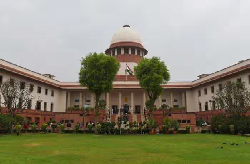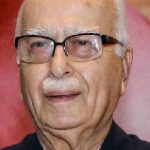The Centre urged the Supreme Court to adjudicate on priority as to whether a minor Muslim girl can marry a person of her choice after attaining puberty. Solicitor General (SG) Tushar Mehta, the second-highest law officer of the Centre, mentioned before CJI D.Y. Chandrachud a plea filed by the National Commission for Protection of Child Rights (NCPCR) against the Punjab and Haryana High Court order, which had held that a Muslim girl can marry a person of her choice after attaining the age of 15.
SG Mehta submitted that diverse views were being taken by different High Courts across the country, resulting in the filing of multiple special leave petitions before the apex court around the same issue. “Please see if this can be listed on priority,” he said. At this, CJI Chandrachud assured SG Mehta that he would direct the listing of the batch of petitions.
In January last year, the top court issued notice to the government and others on NCPCR’s plea to decide upon the question of law, clarifying that its decision not to stay the impugned order of the Punjab and Haryana High Court may not be used as precedent. It appointed senior advocate Rajshekhar Rao as amicus curiae in the matter to assist the court.
The SC pointed out that if the high court judgment — which held that a Muslim girl aged 15 years can enter into a legal and valid marriage as per personal law — was stayed, the girl might be restored to her parents against her wishes. Before the apex court, SG Mehta had contended that Muslim girls who were 14, 15, and 16 years old were getting married. “Can there be a defence of personal law? Can you plead custom or personal law as a defence against a criminal offence?” he said.
The plea filed by NCPCR said the Punjab and Haryana HC erred in ignoring the fact that sexual intercourse with a minor girl below the age of 18 years, is sexual assault as per the Protection of Children from Sexual Offences (POCSO) Act and this legal position cannot be changed due to marital status of the child and that whether on the facts and in the circumstances of the case and in law. It added, “The high court was justified in upholding that a minor girl, after attaining puberty after the age of 15, on her own willingness and consent, can enter into a marriage of her own choice while not considering the validity of a marriage with a minor all the while glossing over the fact that the impugned judgment would lead to endorsing child marriage which is illegal in India because POCSO Act applies to everyone.”
The high court’s order came on a habeas corpus petition filed by a 26-year-old man against the detention of his 16-year-old wife in a children’s home in Panchkula. The high court noted that such a marriage would not be void in terms of Section 12 of the Prohibition of Child Marriage Act 2006.



